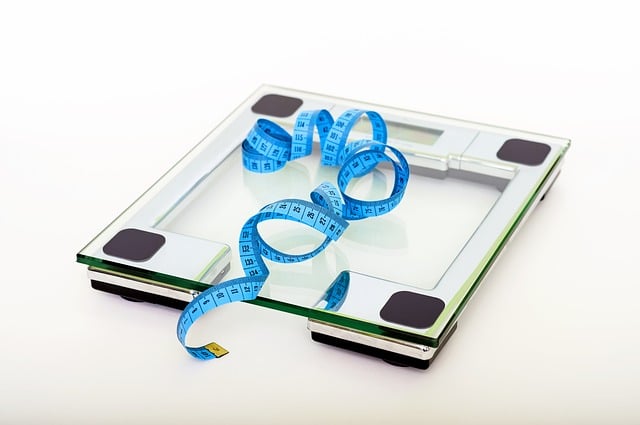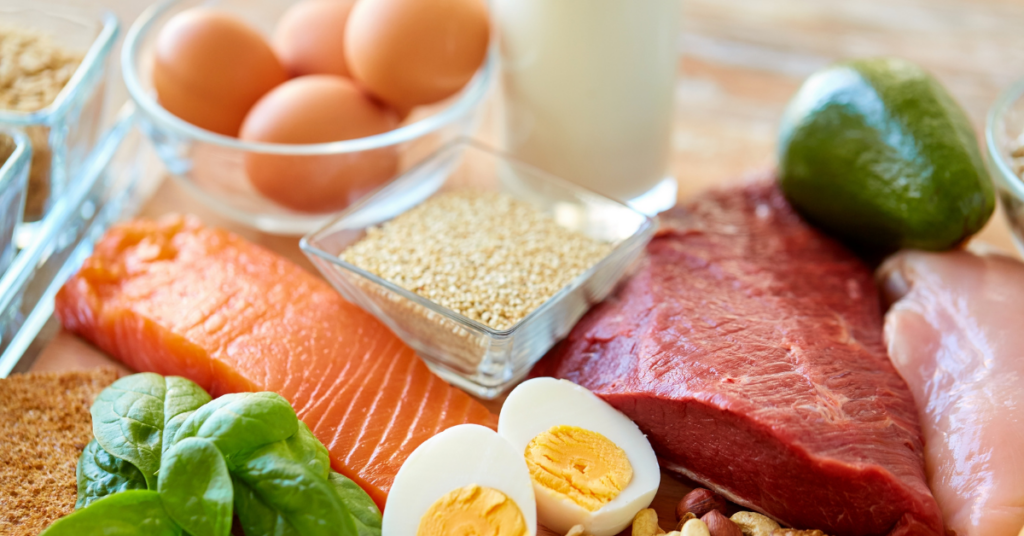The first time I ever met Lori was on July 2nd somewhere around 6:30 in the morning. Lori was a mom of three beautiful kids, a wife that still fawned over her husband, and an ad exec that was climbing the corporate ladder. But none of that mattered the first day she walked into my office bleary-eyed and sleep-deprived for our initial consultation.
Lori was 43 when we first met, and the very first words she ever said to me were, “I need to lose 35 pounds before my family goes on our beach trip in August.”
As a coach, those are always the hardest conversations. Especially when you’re brand new and in your very first Personal Training job. There’s no easy way to tell someone that their expectations might be just a bit outside the boundaries of reality, but it’s also a part of the job.
So I invited Lori to sit down. We talked for a full hour about sustainable weight loss goals, the realities of crash dieting, and why she wanted to lose those 35 pounds – which wound up having far more to do with her feeling comfortable in her own skin again vs. going to the beach.
At the end of that talk, we agreed we’d start seeing each other 3 times a week, and outside of Personal Training I’d also be helping with her eating so she could finally get a handle on her weight, learn how to make healthy meals for herself and her family, and actually feel good about the possibility of taking clients out to dinner.
By the time November rolled around and everyone was prepping for the holidays Lori was down a total of 30 pounds and was starting to shop for a whole new wardrobe. She was an entirely different person. She had always been loud and brash, but there was underlying confidence that was infectious. You could tell she loved the body she lived in, and she felt comfortable in every room she was in because of it.
Lori didn’t get to that place by accident though. She worked for it daily, and along the way she learned a few lessons that helped her lose the weight and keep it off. And those are lessons I want to share with you today. Because no matter if your story is Lori’s story or not, there are a few constants when it comes to weight loss. A few lessons that, if you can learn them and put them into action, will make this whole journey easier.
But before we get into universal weight loss lessons, it’s probably fair that we talk about how and why people gain weight, right? After all, if you’re looking to get somewhere, it’s probably a good idea to try and understand how you got to your current destination.
Why do people gain weight?
Spoiler alert: it’s simple and highly complicated. Gaining weight is kind of like going broke, failing a college class, or any other disaster scenario most of us try to avoid. It never happens overnight, and it never happens for one singular reason.
In reality, gaining weight is simple. It’s a matter of you eating more calories than your body needs on a daily basis. But while the mechanisms behind gaining weight are simple, the reasons why people eat so much more than they need is multifactorial and nuanced.
Gaining weight to the point of being classified as obese or overweight is a process that takes a lot of time and consistent overeating. All of that time and consistent overeating is very rarely something that most people are conscious about.
Instead of it being an overnight trip, the journey to being overweight is often filled with stops at happy hour, lunch at your parent’s house, dinners out with your significant other, and far too many sneaky calories finding their way into your diet without you recognizing it. For Lori, it was entertaining clients and always eating the snacks she bought for her kids.
On top of that, for most of us who live in the developed Western world, our environments are set up to encourage us to gain weight. We’re bombarded with advertising every single day that shows us pictures of crispy and delicious french fries. Or told that bonding with our friends requires wings and beer or wine and cheese.
We’re bombarded with so much information from ads that the American Marketing Association has determined that we see up to 10,000 brand messages in a single day. It’s no wonder that so many of us wind up reaching for a Snickers just so we can be satisfied. We’ve been told that’s exactly what we should do, over and over and over again.
Then you take all of that and add it to the reality that food is a cultural cornerstone for many of us. Since time immemorial, food has been one of the ways that cultures across the world bonded and grew closer to one another. It was a way that people could share an experience, families could develop their own traditions, and cultures could export everything they loved to other cultures in an effort to share themselves with the world.
That’s a trait and tradition that hasn’t stopped. If you’re in the United States you know that to be true just by going to different parts of the country. In the south, like where I’m from, your grandmother serves you fried chicken and fried okra, and she expects you to finish all of it. In the northeast, you might get more pasta, pizza, or latkes, but the expectation is still the same; you eat with your family because it was made out of love, and to not eat all of it is to not accept that love.
That creates a sticky situation where if you’re trying to watch your weight then all of the sudden not only do you have to navigate nearly 10,000+ messages a day from various companies who are selling you their products, you also have to navigate the pitfalls of potentially making your family feel like you’re leaving them behind.
Oh, and we haven’t even gotten around to the fact that so much of our food that we eat today is engineered to be hyper-palatable. I mean, there are scientists at Lays who have the actual job of determining the right amount of crunch on a potato chip that will light up the pleasure center of your brain.
It’s no wonder 70% of adult Americans are overweight or obese.
And yet, people still try to lose weight. In fact, lots of people try to lose weight. About 45 million people, to be a bit more exact. And those same 45 million people typically spend anywhere from $33 to $60 billion dollars to try and drop the weight they woke up one day and decided they were done with.
Because we live in a world full of wonderful options, when 45 million people are willing to spend billions of dollars on something, the market is going to respond by offering up a ton of different ways for those very people to spend their money. And because there are so many diet programs fighting for attention, various programs have to try and stand out in any way they can. Which is where you get things like the Snake Diet, low-carb, DASH, The Raw Food Diet, The Carnivore Diet, Keto, and coffee cleanses.
Some of which might have practical applications in specific situations, but many make no sense whatsoever.
And yet, here’s the great irony about all of these programs, or really any diet program: every single diet finds a different way of getting you do the same thing. They all get you to lose weight by eating fewer calories on a daily basis. That’s the core tenet of each and every single diet out there, no matter how they sell it.
Just to be clear, that’s not me making things up. This is a proven thing that hard science does agree on. For a diet to work and get you to lose weight, it’s got to get you to eat fewer calories on a daily basis. This is a known thing that science is pretty clear on. If you don’t like hearing that and believe that you can drink 5,000 calories of butter in your coffee every morning, then you may want to do some reading here and here.
- Low-carb gets you to eat fewer calories by restricting an entire macronutrient.
- Vegan diets have you eat only plant-based foods, of which there aren’t a ton and they definitely aren’t calorically dense.
- Paleo restricts all processed foods, eliminating most of the hyper-palatable and easy to over-consume foods most of us know and love.
- Fasting eliminates the possibility of eating at certain times, making it much harder to overeat within a set window of time.
- Keto causes you to basically eliminate carbohydrates completely, taking low-carb to a new level of extreme
The main point is that all of these diets, no matter what their core selling point happens to be, is to find a way to get you to eat fewer calories every day.
And here’s the major kicker to this: all of these diets are great at getting you to eat fewer calories for a short period of time. Just about anyone can white-knuckle their way through a highly restrictive ketogenic diet for 4 weeks at a time. In that sense, all of these diets work.
Where problems crop up is in finding a way to make that style of eating a lifelong system so you can keep the weight off. Once that diet is “over”, there is no end game or plan for how to continue.
It’s hard to find actual data on the failure rates of diets since it’s a hard factor to study in a controlled setting. But the Internet is full of stats floating around that say 95% of people who go on a diet wind up gaining the weight back. And while the statistic itself is hard to prove true, the sentiment behind it is as true as can be. We all know people, maybe even ourselves, who have tried to lose weight for a few weeks. Maybe it even worked for a few weeks, only to be thrown a curveball by life and one long weekend later all the weight is back.
And this isn’t a phenomenon that is unique to dieting. This is even the case when it comes to something like bariatric surgery, where about half the people who get weight loss surgery wind up gaining the weight back.
So, how do you avoid becoming a statistic?
https://www.canva.com/design/DAC297Bszig/view
If you’ve made it this far you probably feel like I’ve painted a pretty grim picture of dieting, right? If half the people who get surgery to lose weight wind up gaining it back, how in the world is something supposed to work for us mere mortals who are supposed to skate by on willpower and broccoli?
Well, the first thing to know is that diets don’t necessarily fail. They actually work really well at getting you to lose weight in the short term. They just fail at being a long-term solution for you, and most dietary programs know that from the very beginning – otherwise, they’d give you a set of tools to make their diet last a lifetime.
At Stronger U, we want you to have the tools to make this last a lifetime. We want to do everything we can to coach ourselves out of a job when it comes to working with you, and after helping over 13,000 clients lose a collective 100,000 pounds, we believe that losing the weight and keeping it off comes down to developing three major tools:
1) Awareness
https://www.instagram.com/p/BfjzouXAhHv/?taken-by=strongeru
The very first thing Lori and I started working on was helping her become a bit more aware of how she ate on a daily basis. It wasn’t a complicated or complex ordeal. Instead, we learned how to accurately weigh and log food and keep a consistent food log.
One of the reasons our program works so well is because we empower our members by helping them learn more about the foods that they eat on a daily basis. We don’t tell them what foods they need to be eating, instead, we opt to teach our members how to manage the intake of those foods by counting macronutrients. In order to do that, they’ve got to be aware of what those foods are made up of.
We don’t just do this to drive you mad because you spend all day every day weighing chicken breast. One of the key factors to helping people develop the necessary skill set to keep weight off for a lifetime is teaching someone how to account for what they’re eating on a daily basis. Which typically involves helping someone learn how calorically dense peanut butter really is, how much fat you eat when you’re at a restaurant, and how low protein most “high protein” snacks actually are.
Through developing that awareness most people gain one of the most important skills to lifelong success: they no longer have to depend on people telling them what is good to eat. Through learning to read a label you become the very person most food marketers hate: the person who can see right through what they’re selling.
And because you can see right through a lot of the nonsense that you get sold, you can buy foods that are by default easier to track and consume in moderate quantities. Not coincidentally, most of those foods wind up being whole and minimally processed foods. Things like vegetables, fruits, lean protein, etc.
2) Behavior change
https://www.instagram.com/p/BhxWA5ghfdj/?taken-by=strongeru
For Lori, her entire life revolved around entertaining clients and taking care of the kids. For clients, it was eating meals out. For her kids, it was buying them the snacks they loved. And in those two behaviors were two of the biggest pitfalls that always got in Lori’s way.
The biggest reason most diets tend to fail people from a long-term point of view is that they don’t address the underlying behaviors that most people go through in their day-to-day life. If you don’t tackle the desire to buy junk food as a primary snack or the need to treat each meal out as a chance to splurge then you don’t give that person the tools to make this program work when they’re on their own.
Changing your body and getting to a place where you never have to worry about dieting again requires changing your underlying behaviors. Because, after all, it’s those same behaviors that got you to this place in the beginning. So if you hope to fix that, you’re going to have to change a few behaviors.
Things like drinking a 300-400 calorie drink from your coffee shop every morning are behaviors that aren’t doing you any favors. The same can be said for snacking on chips during your break at work, or going out for a couple of beers with your co-workers after the day is over.
None of those things are behaviors that are inherently bad when they exist in a vacuum by themselves. But we’re people, and people never live in a vacuum. Everything affects everything, and for many of us, it’s not just sugary coffee. It’s the sugary coffee, the beers with friends, and the extra large fries from last Friday that we forgot all about.
Those are all things that typically have to change whenever you start a diet with the hopes of being a healthier you. That’s not to say that they’ve got to be eliminated altogether, that would run counter to what we teach at Stronger U, but it is to say that those times of overindulgence have to occur far less frequently than they used to.
3) Consistency
https://www.canva.com/design/DACpfehY8pY/view








